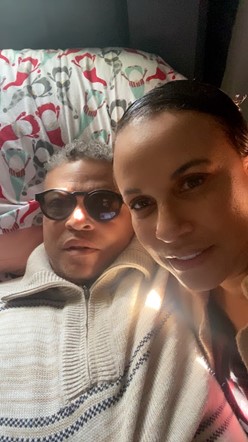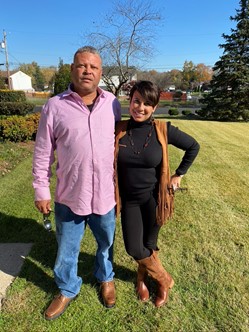Kenneth Jacobs: What Happened?
In this series, we will explore what should have been a routine procedure, became something more devastating. How did it happen, and what can be done about it?
The Department of Health and Human Services (HHS) characterizes underserved, vulnerable, and special needs populations as communities that include members of minority populations or individuals who have experienced health disparities. Underserved communities are often given that moniker due to the lack of treatment and care that are given to those who are ailing. In the case of Kenneth Jacobs, it was a gross miscarriage of treatment that nearly led to catastrophic results, and a family is left searching for answers.
Kenneth is a 49-year-old male who was enjoying life just a year ago, while living in Dumfries. He had his family, and took things one day at a time. Although he was diagnosed with anxiety, schizophrenia and depression, he has undergone treatment with specific medication to help him manage his symptoms.
In February of 2021 he started to suffer from excruciating back pain, and decided to see a doctor. After his first appointment, his doctor had him confined to a bed for the entire month, and was diagnosed with a sciatic nerve, given pain medication, then told that if the pain persisted to visit an emergency room. However, he was never given an MRI, CT scan or X-ray, according to the initial reports.
A week after his third appointment, the back pain did persist, and he had to call 911 and was taken to Sentara Hospital in Woodbridge. Again, no medical records show an MRI, X-Ray, or CT scan ever done. However, on the 28th of February, his family called to check on his progress. They were informed that he was medevaced to INova Fairfax Hospital to remove an abscess on his spine.
Sadly, this is where things took a turn for the worse, especially in the middle of a global pandemic.
A COVID-19 test was administered, and according to the medical reports, the test came back positive for Kenneth. What was surprising about this is that Kenneth did not leave the house the entire time except for doctor’s appointments, and his family all tested negative, so where could the positive results come from? Also, no covid tests were conducted at any of his doctor’s appointments.
(Note: Kaiser Health News reports that more than 10,000 people tested positive for covid after being hospitalized for something else in 2020.)
Kenneth, who was already dealing with his previously aforementioned mental health challenges, requested for his family to be at his bedside, since he requires constant supervision, and was confused as to what was going on. As a result of the positive test, his family was barred from visiting him until March. Even more damaging, they received no follow up surgery information as Kenneth lost all sensation in his body from the waist down. In late March, his brother-in-law and sister met with the charge nurse at INova, where Kenneth was on the 10th floor. They were informed by a nurse that only Covid patients should’ve been on that floor. He was moved to the 8th floor where he received wound care.
What’s interesting to note is that he did not receive pre-surgery spinal care for 30 days after the initial surgery since the nurses on the 10th floor were not trained or certified in wound care.
He was discharged prematurely from the hospital in April 2021, and sent to ManorCare, a nursing home in Arlington.
What the family discovered was beyond sickening, as there was a large hole in his back as large as a human fist, along with rapidly detached stitches, as well as a catheter that had not been replaced since February. In addition, he had a clogged wound drain, bedsores, and no plan of care from UAI, Virginia’s Uniform Assessment Instrument. His Anthem case worker filed a complaint.
During his first night in ManorCare, he coded on an overdose of pills according to medical notes, as he was given pills that he does not use. His family had him removed from ManorCare in May and he returned to the emergency room at INova for yet another surgical procedure. On top of all the ailments he was dealing with, he now had E.coli, the same catheter and the clogged wound he had when he was admitted.
He was finally given an MRI, but not of his entire back. It took four plastic surgeries to close the open wound. In June, he was admitted to the Encompass Health Rehabilitation Hospital, who gave him excellent support. Several months later, there was no report on what caused his paralysis.
There are so many layers to uncover, and several questions that need answering:
Why was his family never informed of his transfer?
Why were basic medical procedures (MRI, X-Ray, CT scan) never performed?
Why was he placed on the 10th floor despite not having Covid in the beginning?
Federal civil rights resolution clarifies that hospital visitor policies nationwide must accommodate patients with disabilities during the COVID-19 pandemic.

There will be more to come, but for the Jacobs family, they are continuing to suffer unnecessarily, and it brings a stark reminder of how little care that underserved communities receive. At some point, there needs to be a light at the end of the tunnel. If not only for the Jacobs family but for the next person who needs medical care.


